Astronomy
-
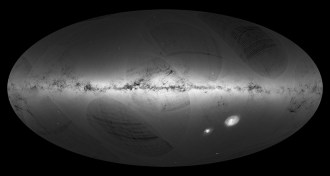 Astronomy
AstronomyGaia mission’s Milky Way map pinpoints locations of billion-plus stars
New map of the galaxy provides unprecedented positions of over 1 billion stars and promises of a detailed 3-D atlas to come.
-
 Astronomy
AstronomyProxima b deserves buzz, even if some didn’t notice
Editor in chief Eva Emerson discusses Earth's newest potentially habitable neighbor.
By Eva Emerson -
 Health & Medicine
Health & MedicineReaders contemplate aging research
Aging research, dino guts and Earth's quasisatellite in reader feedback.
-
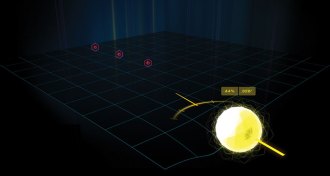 Astronomy
AstronomyBlack hole app lets you blow up stars
NOVA’s Black Hole app for iPad is an addictive game that teaches lessons about gravity and astronomy while letting you hurl stars at one another.
-
 Tech
TechSpaceX rocket explodes on Florida launchpad
SpaceX has lost a Falcon 9 rocket and its satellite payload in a standard prelaunch test.
-
 Astronomy
AstronomyRadio signal probably not from extraterrestrials
A possible radio signal from extraterrestrials probably originated a lot closer to home.
-
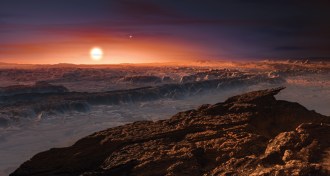 Astronomy
AstronomySigns of planet detected around sun’s nearest neighbor star
A planet roughly the size of Earth orbits within the habitable zone of Proxima Centauri, the closest star to the sun.
-
 Astronomy
AstronomyAstronomers prepare for 2017 solar eclipse spectacle
With one year to go, researchers are making plans for studying both the sun and Earth during the August 2017 total solar eclipse.
-
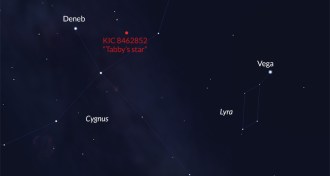 Astronomy
AstronomyTabby’s star drama continues
Tabby’s star, already known for its bizarre flicking and fading, dimmed throughout the four years of Kepler’s primary mission.
-
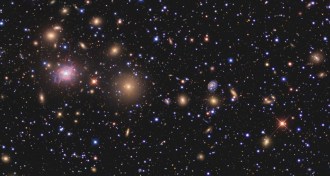 Astronomy
AstronomyDark matter candidate particles are a no-show in Hitomi data
Before the Hitomi satellite broke apart, it captured data that cast further doubt on evidence of X-rays from dark matter particles in a galaxy cluster.
-
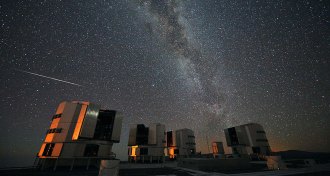 Astronomy
AstronomyThis year’s Perseid meteor shower will be especially flashy
This year’s Perseid meteor shower could produce up to 200 meteors per hour as Earth plows through the debris trail of comet 109P/Swift-Tuttle.
-
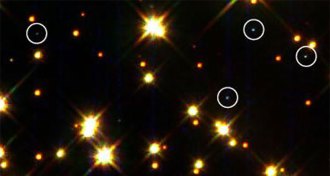 Particle Physics
Particle PhysicsCooling stars hint at dark matter particles
Stars that cool faster than expected can be explained by hypothetical particles called axions.